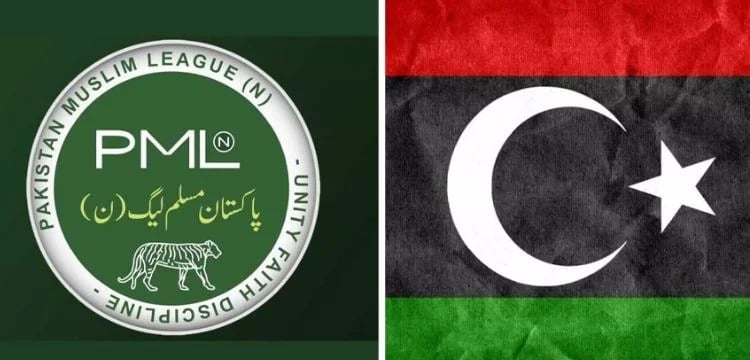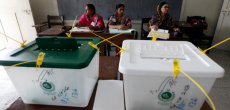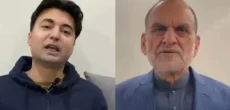[vc_row][vc_column][vc_column_text dp_text_size=”size-4″]The coordination committees of the Pakistan Muslim League Nawaz (PML-N) and the Pakistan Peoples Party (PPP) recently concluded their second round of talks in Islamabad, focusing on progress toward government formation. This ongoing dialogue seeks to pave the way for collaborative efforts in shaping the political landscape.
Representatives from both parties, including Senator Ishaq Dar, Sardar Ayaz Sadiq, Senator Azam Nazir Tarar, and Malik Muhammad Ahmed Khan from PML-N, and Syed Murad Ali Shah, Qamar Zaman Kaira, Saeed Ghani, Sardar Bahadur Khan Sehar, Nadeem Afzal Chan, and Shazi Khan from PPP, participated in these discussions. The coordination committees are set to convene for a third session on Friday, aiming to finalize recommendations after consultations with their respective political leaderships.
Read more: PPP Denies Zardaris Contact With Sher Afzal Marwat
Notably, PPP has extended its support to PML-N in the government formation process and the election of the next prime minister. However, this support comes with the condition that PML-N reciprocates by endorsing PPP in elections for crucial constitutional offices.
The intricate task of nominating candidates for these influential positions has introduced a layer of complexity to the discussions. PPP Chairman Bilawal Bhutto-Zardari faces the challenge of navigating through stiff competition among individuals within his party to finalize suitable candidates.
Initially, there were considerations for former prime minister Yousuf Raza Gilani to assume the role of National Assembly speaker. However, recent developments have directed him to maintain his Senate seat, indicating the possibility of his nomination for the position of Senate chairman.
Within PPP, speculation is rife about the potential candidacy of former opposition leader Khursheed Shah for the position of speaker. Indications suggest that individuals from Sindh may play leadership roles in both houses, adding an element of regional representation to the decision-making process.
The ongoing dialogue between PML-N and PPP underscores the significance of collaboration in shaping the political landscape of Pakistan. As the coordination committees continue their consultations, the intricacies of political negotiations, the selection of suitable candidates, and the fulfillment of reciprocal commitments remain pivotal aspects to be addressed.
This process also sheds light on the dynamic nature of political alliances and the complexities inherent in forming a coalition government. The considerations for regional representation, individual competencies, and the distribution of influential positions highlight the multifaceted nature of these discussions.
In conclusion, the ongoing talks between PML-N and PPP hold the potential to shape the political trajectory of Pakistan. The collaboration and negotiations between these key political players will determine the formation of the government and the distribution of crucial roles in the country’s political landscape. As the dialogue progresses, the decisions made will not only impact the immediate political scenario but will also set the tone for governance and collaboration in the foreseeable future.[/vc_column_text][/vc_column][/vc_row]











